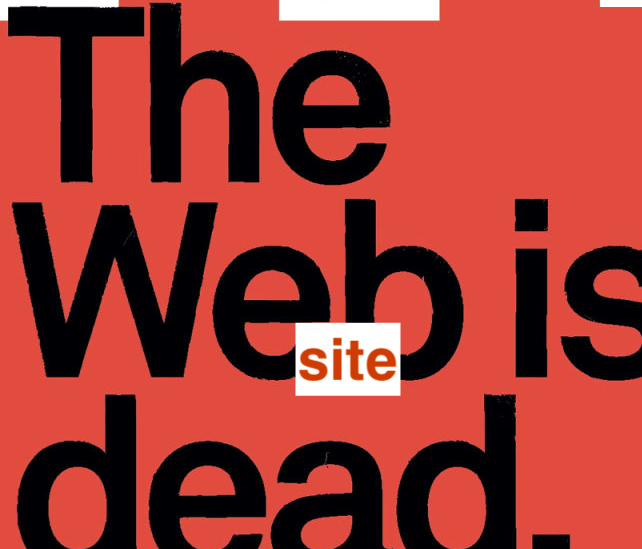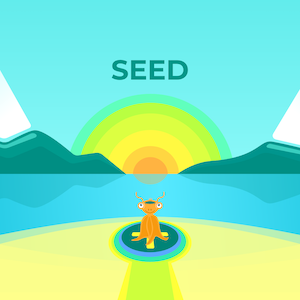Can you imagine a world without YouTube? Or even Google? For better or worse, we are trying to... Hundreds of millions of people are literally 'webbed' into these global portals for most part of their waking life. Regardless if you are an artist, musician, student, vlogger, activist, gamer, techie, teacher, scientist, institution, journalist, philosopher, fund-raiser etc etc - we are using Youtube for various reasons and in myriad capacities. Youtube's sphere of influence and reach is greater than any news-media on earth today. Less than a decade earlier, Youtube's initial surge was a result of the en-mass buildup of 'free-music, movies, documentaries and funny home-videos'. Yet that fraternity and spirit did not last long. Youtube taken over by Google would transform into a humongous platform, an empire holding thousands of smaller empires within, made of of information, content, music, art and ideas (and the sheer labour) generated by the public of the world. Article 13 has created a 'tsunami' within the segment of society which 'lives and wakes up' on Youtube. The domination, the ethics and certain unfair practices of the world's biggest audio-video portal are being heckled finally, from within Europe. The power-struggle is out in the open. However, as usual, public has little power to decide and much to protest and protect. Perhaps with the opening salvo of this article, and in the next sections, most people reading this will not exactly be sympathetic to what we have to say. However, we are presenting facts, opinions and asking the questions which most folks are trying to avoid or disregard.
Article 13
In July 2018, European Parliament’s Office on Legal Affairs (JURI) declared to vote on a new proposed Copyright Directive. The Directive, which claims to update and reinforce the rights of rights holders within Europe’s Digital Market. Certain institutions within Europe have called Article 13 "Largely a positive step forward, inasmuch as the law needs to be updated in light of modern technologies and the Internet". However, these folks sitting in positions of influence and power, seldom ask why JURI did not consult the general public, artists, professionals and creators within EU? What 'vote' is valid without public participation and dissemination? Instead Article 13 is framed, drafted and lobbied behind-close-doors by a cabal of lawmakers and institutions (mostly German), vested in a deep power-struggle against monopolies of Youtube and Google. This is not about banning 'memes' or stealing a song or video-footage. This is about a war for the control of markets, minds and methods. The 'lobby' of experts behind Article13 failed to answer pertinent questions about the implications for free expression, creativity, and the freedom to publish anything online. Further they remain silent about how to differentiate between fair use versus copyright infringement. Article 13 backslides when looking for a tangible model where citizens and artists benefit instead of the big institutions, law-makers and their patron corporations. Many wonder if this new mandate is just another internet 'moral police' in the making? A recent study shows that 72% of the ministers in the EU parliament had no clue about Article 13 nor about the protests and criticism raised by their own citizens. "Infrastructure can be easily repurposed by government and corporations – and further entrenches ubiquitous surveillance into the fabric of the Internet.” states The Internet Society. "These new laws are considered disastrous by some of the foremost tech experts in the world" claims Gizmodo.com. 'Foremost tech-experts' and their 'digital shamanism' aside, the owners of Gizmodo have no problems making ad-revenues from viciously competitive corporations like Chevrolet, Amazon, Apple and Samsung.
Folks championing Article 13 speak of new hope, new possibilities and "citizens in control" of the internet. Yet hope is a subjective thing. The new law may 'mitigate' the power over publishers that Google and Facebook have amassed in the last decade. Article 13 codifies new copyright rules pushed by business groups emerging within mainland Europe. Read the Open-Letter to the president of the EU parliament, outlining (and warning) the consequences if such laws come into effect. Google's and Youtube's rabble-rousing tirade of "#SaveYourInternet" picked up rapid momentum with thousands of video-bloggers initially. Mostly denouncing the EU Parliament's mandate. People whose very existence and livelihood is based on internet traffic and the business of number generation. Wired Magazine's take is as bogus, as outdated - "YouTube's Content ID system detects copyrighted materials by matching via the platform's content verification program portal" On the contrary mass evidence shows that YouTube has used Content ID for a decade and yet remains a successful host for content of all kinds. Content (audio and video) which is copied, reused, resampled, plagiarised, of acapella, of renditions or even plain leaked music.
Fact is that Youtube is currently hosting content which is malicious, propagating violence, misogyny, racism and xenophobia. Youtube has become biggest platform for many xenophobes, nationalists, nazi lovers and the whole gamut of Alt-Right idiocy and extreme Leftist dogma. We can all see the million subscribers of titivating anti-semitic anti-black content on You-tube that are outdoing the traffic for Disney and Hollywood. Video-clips of women being shamed in public, recorded and uploaded by misogynists (with thousands of subscribers) is not considered a violation nor problem. Instead it just piles up more ad-revenues for Youtube and Google. #SaveYourInternet rather be renamed as #SaveYoutube. Clearly the folks at the forefront of the outcry are also rapacious beacons of competition. Those most deeply involved in the business to attract more traffic, comments, clicks and likes on Youtube are the one's crying the loudest. The life of more and more 'likes'. That too with very little thought or concern about their unfettered commitment to a monoculture. Hardliners like Sam Vaknin (scholar, child prodigy) say "The internet did not bring us together by any means. Youtube is a paradise for the disturbed and narcissistic..."
Article 13
In July 2018, European Parliament’s Office on Legal Affairs (JURI) declared to vote on a new proposed Copyright Directive. The Directive, which claims to update and reinforce the rights of rights holders within Europe’s Digital Market. Certain institutions within Europe have called Article 13 "Largely a positive step forward, inasmuch as the law needs to be updated in light of modern technologies and the Internet". However, these folks sitting in positions of influence and power, seldom ask why JURI did not consult the general public, artists, professionals and creators within EU? What 'vote' is valid without public participation and dissemination? Instead Article 13 is framed, drafted and lobbied behind-close-doors by a cabal of lawmakers and institutions (mostly German), vested in a deep power-struggle against monopolies of Youtube and Google. This is not about banning 'memes' or stealing a song or video-footage. This is about a war for the control of markets, minds and methods. The 'lobby' of experts behind Article13 failed to answer pertinent questions about the implications for free expression, creativity, and the freedom to publish anything online. Further they remain silent about how to differentiate between fair use versus copyright infringement. Article 13 backslides when looking for a tangible model where citizens and artists benefit instead of the big institutions, law-makers and their patron corporations. Many wonder if this new mandate is just another internet 'moral police' in the making? A recent study shows that 72% of the ministers in the EU parliament had no clue about Article 13 nor about the protests and criticism raised by their own citizens. "Infrastructure can be easily repurposed by government and corporations – and further entrenches ubiquitous surveillance into the fabric of the Internet.” states The Internet Society. "These new laws are considered disastrous by some of the foremost tech experts in the world" claims Gizmodo.com. 'Foremost tech-experts' and their 'digital shamanism' aside, the owners of Gizmodo have no problems making ad-revenues from viciously competitive corporations like Chevrolet, Amazon, Apple and Samsung.
Folks championing Article 13 speak of new hope, new possibilities and "citizens in control" of the internet. Yet hope is a subjective thing. The new law may 'mitigate' the power over publishers that Google and Facebook have amassed in the last decade. Article 13 codifies new copyright rules pushed by business groups emerging within mainland Europe. Read the Open-Letter to the president of the EU parliament, outlining (and warning) the consequences if such laws come into effect. Google's and Youtube's rabble-rousing tirade of "#SaveYourInternet" picked up rapid momentum with thousands of video-bloggers initially. Mostly denouncing the EU Parliament's mandate. People whose very existence and livelihood is based on internet traffic and the business of number generation. Wired Magazine's take is as bogus, as outdated - "YouTube's Content ID system detects copyrighted materials by matching via the platform's content verification program portal" On the contrary mass evidence shows that YouTube has used Content ID for a decade and yet remains a successful host for content of all kinds. Content (audio and video) which is copied, reused, resampled, plagiarised, of acapella, of renditions or even plain leaked music.
Fact is that Youtube is currently hosting content which is malicious, propagating violence, misogyny, racism and xenophobia. Youtube has become biggest platform for many xenophobes, nationalists, nazi lovers and the whole gamut of Alt-Right idiocy and extreme Leftist dogma. We can all see the million subscribers of titivating anti-semitic anti-black content on You-tube that are outdoing the traffic for Disney and Hollywood. Video-clips of women being shamed in public, recorded and uploaded by misogynists (with thousands of subscribers) is not considered a violation nor problem. Instead it just piles up more ad-revenues for Youtube and Google. #SaveYourInternet rather be renamed as #SaveYoutube. Clearly the folks at the forefront of the outcry are also rapacious beacons of competition. Those most deeply involved in the business to attract more traffic, comments, clicks and likes on Youtube are the one's crying the loudest. The life of more and more 'likes'. That too with very little thought or concern about their unfettered commitment to a monoculture. Hardliners like Sam Vaknin (scholar, child prodigy) say "The internet did not bring us together by any means. Youtube is a paradise for the disturbed and narcissistic..."
"Substitute toys and gadgets with clothing, home furnishings, places to live, movies to see, food to eat, jobs to do, parties to vote for, lifestyles to embrace…the whole construct of civilised life is a series of discrete packages that may change their contents from time to time, but as entities are so fundamental to modern culture that without them we feel as if we may as well not exist." says Underminers.org. A very valid opinion about human culture and rather poignant in the case of the internet as well. Earlier this year, we published an article titled 'Your Music Their Profit' which outlined the nature of exploitation, of artists and their content online. The debate seems to have rapidly amplified, now resonating from many more artists, institutions and activists from various nations and of various sizes. Prominent campaigners, like the Copyright for Creativity Coalition, say that "duration of copyright is too long, the proposals are outdated. These rules create no harmonisation lead to a dysfunctional implementation and enforcement of the rules" YouTube CEO Susan Wojcicki wrote "Article 13 by the European Union parliament would put hundreds of thousands of jobs at risk, and dramatically change the online video market". That is mainly rabble-rousing and a product of hard-core corporate hegemony. Clearly based on evidence, Youtube does not care about any such risk nor economic consequence, instead it seems rather desperate 'shitting-a-brick' at the prospect of loosing hundreds of millions of viewers which equates to reducing profits and dominance.
The Last Two Cents?
As an artist, musician, writer and content creator for 20 odd years now, and having made no financial gains ever via Youtube or Google or this blog [We rejected Google's Ad Sense in 2008] - here are some thoughts and ideas for you to mull over. Our right to expression and our content is more important than any service or platform or even legal mandate. Article 13's big claims or Youtube's hoodwink alarm to save the internet, both are products of a system which does not benefit artists, content creators and public. Both ends of the spectrum locked in a vicious power-struggle over 'control and profit maximisation'. Why take sides? What is our allegiance based on? The collective vested public energy is monetised by 5 tech-giants who pretty much control 80% of the internet. Blockchain and crypto-currency technology is gradually trickling into public awareness and use, though much of it remains in formation and sometimes rather unstable. However, open-source code, public activism, disruptive and emerging technology does provide new options and new means of distributing (and earning) from music, video and content in general - in a far more democratic and transparent manner. Artists, public and institutions who are resisting and questioning online monoculture are not wedged on hope but on commitment and action. Change we must, and for our own benefit. Article13 is not a guarantee for protecting citizen and artist rights. Youtube and Google cannot be dispensed yet. However we have new, smaller, democratic options now moving towards 'higher ground'. We urge you to 'care' more about your music, art and individual freedom and creativity instead of abiding to forced legal mandates or the survival of Youtube.com. Say No to the 'Single Digital Market'. No to Hegemony. The internet is public property. Ride it...
The Last Two Cents?
As an artist, musician, writer and content creator for 20 odd years now, and having made no financial gains ever via Youtube or Google or this blog [We rejected Google's Ad Sense in 2008] - here are some thoughts and ideas for you to mull over. Our right to expression and our content is more important than any service or platform or even legal mandate. Article 13's big claims or Youtube's hoodwink alarm to save the internet, both are products of a system which does not benefit artists, content creators and public. Both ends of the spectrum locked in a vicious power-struggle over 'control and profit maximisation'. Why take sides? What is our allegiance based on? The collective vested public energy is monetised by 5 tech-giants who pretty much control 80% of the internet. Blockchain and crypto-currency technology is gradually trickling into public awareness and use, though much of it remains in formation and sometimes rather unstable. However, open-source code, public activism, disruptive and emerging technology does provide new options and new means of distributing (and earning) from music, video and content in general - in a far more democratic and transparent manner. Artists, public and institutions who are resisting and questioning online monoculture are not wedged on hope but on commitment and action. Change we must, and for our own benefit. Article13 is not a guarantee for protecting citizen and artist rights. Youtube and Google cannot be dispensed yet. However we have new, smaller, democratic options now moving towards 'higher ground'. We urge you to 'care' more about your music, art and individual freedom and creativity instead of abiding to forced legal mandates or the survival of Youtube.com. Say No to the 'Single Digital Market'. No to Hegemony. The internet is public property. Ride it...






























0 -